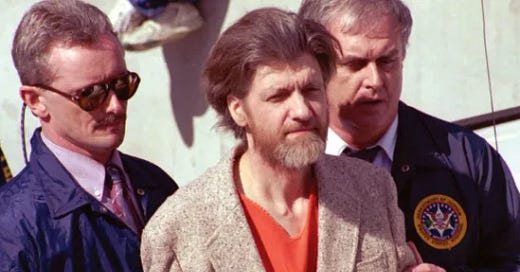So, The Unabomber Was Right...
If nothing else, his takes would probably cut across modernity's ideological lines.
There is a new article in The New York Times discussing the “gut-level hatred” that our political system has become, which on many days feels accurate. I do think this needs a slight caveat, though: a lot of the American public is not that intelligent and doesn’t follow the news and mostly just consumes pop culture, tries to make ends meet, and breeds. …
Keep reading with a 7-day free trial
Subscribe to What Is Even Happening? to keep reading this post and get 7 days of free access to the full post archives.




